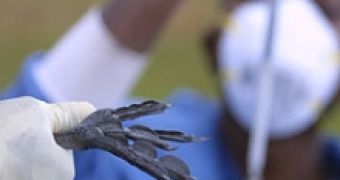Britain's efforts to stop the spread of bird flu proved to be useful when chickens in 2 more farms in Norfolk were found to have the virus.
The farms are located near Dereham, the same place where 35,000 chickens are being slaughtered after the disease was found there last week in the eastern English county of Norfolk. "We can confirm preliminary tests indicate H7N3 (bird flu), but further tests are being carried out," said a spokeswoman for the Environment Ministry on Saturday.
Movements of poultry, eggs and poultry products have been limited in the area around all 3 farms. "We are investigating whether there any links or movements between the two suspect farms and the confirmed infected premises. The working hypothesis remains that the most likely source of the virus is from another premises or from wild birds," Britain's chief veterinary officer Debby Reynolds stated.
The flu is present in a low-pathogenicity form, namely the H7N3 virus, but this too could mutate and become deadly. The British government has been on alert since the H5N1 virus was found in a wild swan in Scotland earlier this month.
In response to these recent outbreaks, Japan banned poultry imports from Britain. The Environment Ministry said it was not informed about the Japanese officials' decision.
"If it is the case we will contact the Japanese embassy to explain our view on it which is that a ban would not be appropriate given the circumstances and that would be consistent with the World Animal Health Organisation guidelines," said a spokesman for the department.

 14 DAY TRIAL //
14 DAY TRIAL //